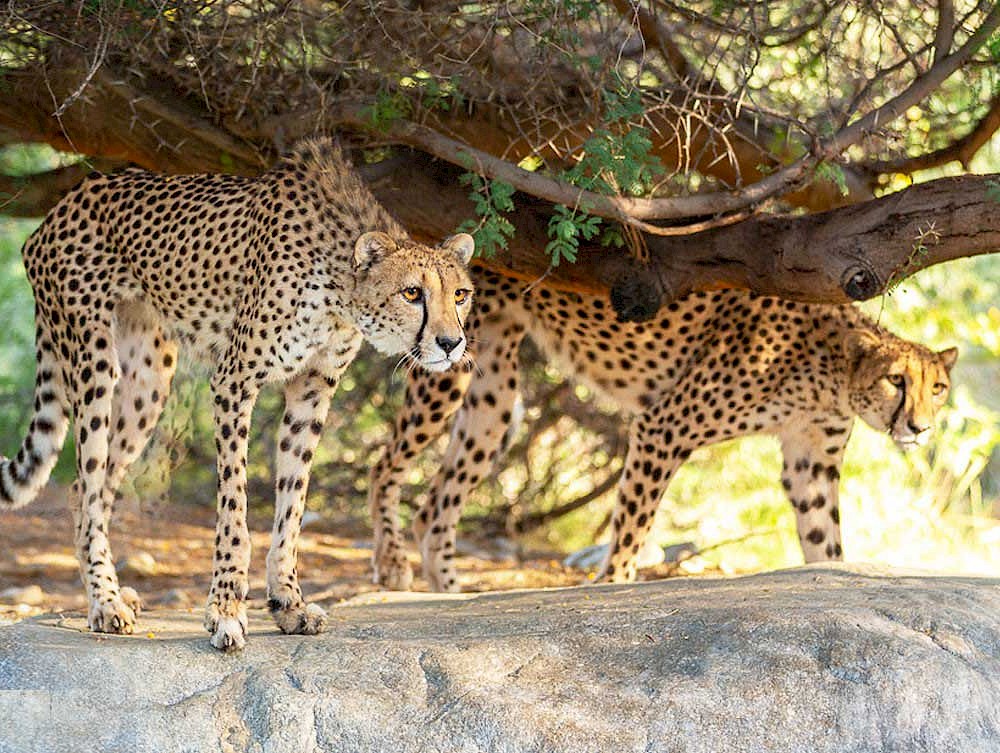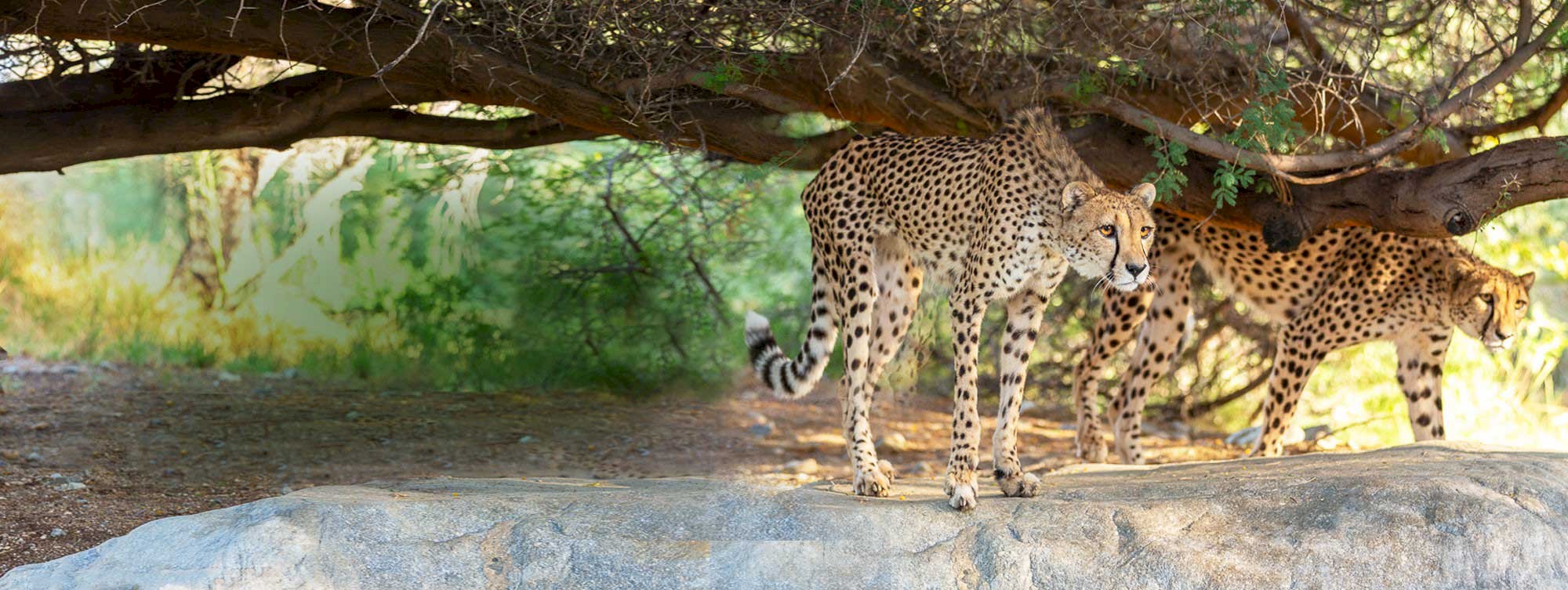Building Community Conservation Success In Zimbabwe: Imvelo Safari Lodges
July 18, 2023
By: Katie Shaw, Conservation Social Scientist
The Living Desert’s second Building Community Conservation Success (BCCS) workshop in Zimbabwe this month was held near Hwange National Park in partnership with Imvelo Safari Lodges with students from Lupane State University (LSU). After 2½ days of learning, discussing, and planning, our two teams of students each created an interview guide. The interviews were about local communities’ needs and their experiences with human-wildlife conflict (HWC). Imvelo understands the importance of local community support in the long-term success of wildlife conservation and works extensively with local communities to provide economic benefits, educational benefits, response to human-wildlife conflict, and access to clean water and health care. In addition, Imvelo spearheaded the Community Rhino Conservation Initiative (CRCI) which involved re-introducing white rhinos in a sanctuary on communal land that acts as a buffer zone between Hwange National Park and nearby communities. The LSU students were eager to collect data that will be of use to Imvelo as they expand their initiatives into additional communities outside of Hwange National Park.
GATHERING ESSENTIAL SURVEY DATA
We went to three communities, considered by Mark Butcher, owner of Imvelo, to be among the “front-line communities.” These communities, located along the unfenced boundary of Hwange National Park, disproportionately bear the burdens of sharing a landscape with wildlife. The LSU students aimed to better understand the nature of the HWCs and other important needs in these communities. Although approaching local residents and conducting interviews – especially on contentious topics – can be an intimidating process, many students enthusiastically tackled the challenge immediately. By the end of the afternoon, even those who were initially apprehensive were engaged interviewers, telling me, “Just one more interview,” before we returned to camp. Ultimately, we conducted over 40 interviews in just one afternoon!
INTERPRETING SURVEY RESULTS
After in-depth discussions and a preliminary analysis with the LSU students, the data provides valuable insights for Imvelo. Participants shared details about their HWC experiences and quantified their significant losses, including up to twenty goats in one week and twelve cattle in one night to carnivores and entire fields of crops to elephants. Although participants cited using a range of mitigation techniques, including sleeping in their fields, banging pots, using fire, and setting dogs after wildlife, many were still incurring losses, particularly to hyenas that go undetected at night. The majority of participants shared that Imvelo most commonly responds to HWCs, more than Rural District Councils and National Parks staff, but damages frequently have already occurred by the time of conflict resolution.
Beyond HWCs, participants shared a number of other pressing issues and needs. There is often a lack of access to clean water since the borehole pumps either break down or are laborious to use (to which I can attest after helping residents use the heavy hand-pump!). Schools and health clinics are difficult to access, as they require traveling long distances. High unemployment is also an issue, as it is across all of Zimbabwe. As Imvelo’s lodges employ numerous locals from other communities, participants are interested in a lodge in their community, as long as it would hire locals, be located on agreed upon land, and respect local cultural beliefs. Many participants were similarly interested in expanding the CRCI to their community, albeit with similar terms. Some responses indicated that additional outreach would be beneficial first though, as a few residents thought that CRCI simply involved releasing rhinos that could then become problem animals.
SHAPING THE NEXT GENERATION OF CONSERVATIONISTS
Beyond the data collected, the LSU students shared that the workshop taught them the importance of working with local communities as part of conservation efforts and some ways in which to do so, helping to shape the next generation of conservationists in Zimbabwe. The initial collaboration between The Living Desert, Imvelo Safari Lodges, and Lupane State University was a great success and we all hope to expand such efforts in the future!













